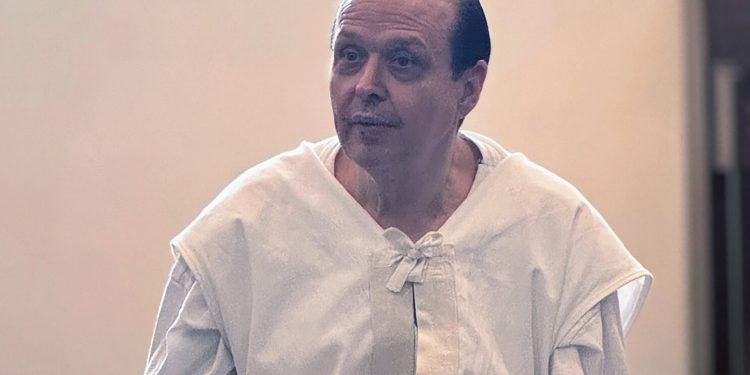A second attempt by Texas lawmakers to bring a man on death row to the state Capitol, amid doubts over his conviction for killing his 2-year-old daughter, failed again on Friday. This setback reduced the chances of Robert Roberson testifying publicly after a last-minute subpoena blocked his execution.
Roberson, who was scheduled to die by lethal injection in October, would have been the first person in the U.S. executed for a conviction related to shaken baby syndrome, a diagnosis that medical experts have questioned.
The latest failed attempt to have Roberson testify followed Texas’ attorney general requesting a court to block a second legislative subpoena. Lawmakers are running out of time before the Legislature reconvenes in January, when the subpoena will expire.
“We’ve been trying to fight this accommodation since October, and they’ve never responded meaningfully because they don’t want Robert here,” said Democratic state Rep. Joe Moody, one of the lawmakers pushing to halt Roberson’s execution.
Roberson, 58, was convicted in 2003 of killing his daughter. Prosecutors argued he violently shook her, causing severe head trauma associated with shaken baby syndrome.
A bipartisan group of lawmakers, civil rights advocates, and medical experts have cast doubt on the shaken baby diagnosis used to convict Roberson, suggesting his daughter may have died from severe pneumonia instead.
Texas Republican Attorney General Ken Paxton has staunchly defended Roberson’s conviction, stating that the science behind shaken baby syndrome has not changed enough to alter his guilt.
In a court order, Paxton’s office argued that “it is not the role of the Legislature to adjudicate offenses,” claiming lawmakers overstepped their power in halting Roberson’s execution.
The Texas House Committee on Criminal Jurisprudence issued its first subpoena for Roberson to testify one day before his scheduled execution—a legal move that successfully postponed his execution.
No new execution date has been set.
Texas has a “junk science law” that allows individuals wrongfully convicted based on questionable science to have their sentences overturned. The House committee said they wanted Roberson to testify about this law and how it has failed in his case. Criminal justice advocates claim that the state’s highest criminal court has intentionally misinterpreted the law.
In November, the Texas Supreme Court ruled that while the subpoena was valid, it could not be used to prevent a scheduled execution.
Republican Gov. Greg Abbott has maintained that Roberson was rightfully convicted. The Texas Board of Pardons and Parole unanimously voted against recommending clemency in October.
